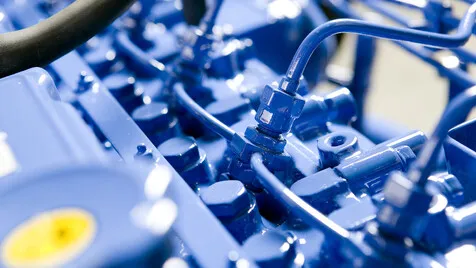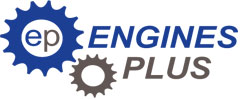
With the performance and reliability of both industrial and marine applications being key, keeping engines in prime condition is naturally essential. Yet even with rigorous maintenance, every engine reaches a point where replacement becomes the most viable option. With our extensive expertise in both industrial and marine engines, our team is here to guide you on timing engine replacements and making sure you get the most out of your investment.
Understanding Engine Longevity
Engines are designed to stand the test of time, but their lifespan varies based on usage, maintenance, and operating conditions. As a general rule, many engines can last anywhere from 1,500 to 3,500 hours of operation, depending on the type of engine and its application. However, numerous factors influence this longevity:
- Type of Equipment: For example, an excavator that operates under heavy loads may wear out faster than a small boat engine used more intermittently.
- Maintenance Practices: Regular oil changes, fluid checks, regular maintenance and component inspections can extend an engine’s life.
- Operating Conditions: Engines exposed to harsh environments, such as saltwater or extreme temperatures, may degrade more quickly.
Signs Your Engine Needs Replacement
- Frequent Breakdowns: If your engine requires constant repairs, it might be more cost-effective to replace it. Frequent breakdowns can lead to significant downtime and increased labour costs.
- Reduced Performance: A noticeable decrease in power, efficiency, or speed indicates your engine may be struggling. As quoted by the experts at Practical Boat Owner, “Regular maintenance will help keep your boat at its best throughout the year, so you can spend more time on the water and less time fixing things.” If maintenance isn’t reversing performance issues, a replacement might be the solution.
- Excessive Smoke or Noise: Unusual sounds or excessive smoke can indicate severe internal damage. This can be particularly common in older engines that have not received proper care.
- Oil Contamination: If you notice metal shavings or sludge in your oil, this could signify significant engine wear. Regularly check your oil, as recommended by our team at Engines Plus: “Regularly look over your engine; check fluid levels, and look for cracked or leaking hoses and loose belts.”
- Age of the Engine: Many industrial engines can last up to 15 years or longer with proper care. However, once they hit the 10-year mark, it’s wise to start considering replacement, especially if they’re showing any of the previous signs.
The Best Time for Engine Replacement
Timing is critical when it comes to engine replacement. The best time can vary depending on the type of equipment:
For Marine Engines:
Mid-season checks offer boat owners a valuable opportunity to assess engine health, especially during peak usage periods. As Practical Boat Owner, in association with boatcare by boatfolk, advises: ‘Make sure you regularly check the engine oil levels.’ This is the ideal time for a comprehensive inspection to ensure optimal performance and longevity. Take a look at the Engines Plus Shop for Engine Oil.
In addition to engine checks, it’s essential to monitor your battery health. The battery is the heart of your boat; without it, your engine won’t start, and electrical components won’t work. Regular checks of the battery’s charge using a digital multimeter, along with inspecting connections for corrosion, are crucial. If your battery shows signs of degradation, it’s wise to replace it alongside or before considering engine replacement.
If you notice any issues during these checks, it’s wise to consider replacement before the next boating season begins.
For Industrial Equipment:
In the construction industry, downtime can be costly. It’s often best to schedule engine replacements during off-peak seasons or planned maintenance periods. Monitoring the equipment’s performance metrics over time can guide your decision; if a downward trend in efficiency is noted, planning a replacement during scheduled downtime can minimise disruption.
Preparing for Engine Replacement
When preparing for an engine replacement, consider the following steps:
- Consult Experts: Engaging with professionals like the Engines Plus team can provide insights into the best replacement options for your specific needs.
- Budget for Replacement: Understand the financial implications, including purchase, installation, and potential downtime costs.
- Choose the Right Engine: Ensure you select an engine that meets your operational requirements, efficiency standards, and environmental regulations.
- Plan for Installation: Schedule installation during off-peak times to reduce operational disruption.
As we all know, replacing an engine is a significant decision that requires careful consideration. By monitoring performance and maintenance and recognising the signs of wear, you can make informed choices to keep your equipment running smoothly. At Engines Plus, our knowledgeable team is here to assist you in determining the best course of action for all your engine replacement needs. With proper care and timely renewal , you can maximise your operational efficiency and minimise downtime, ensuring that you remain at the top of your game both on the water and on the construction site.
